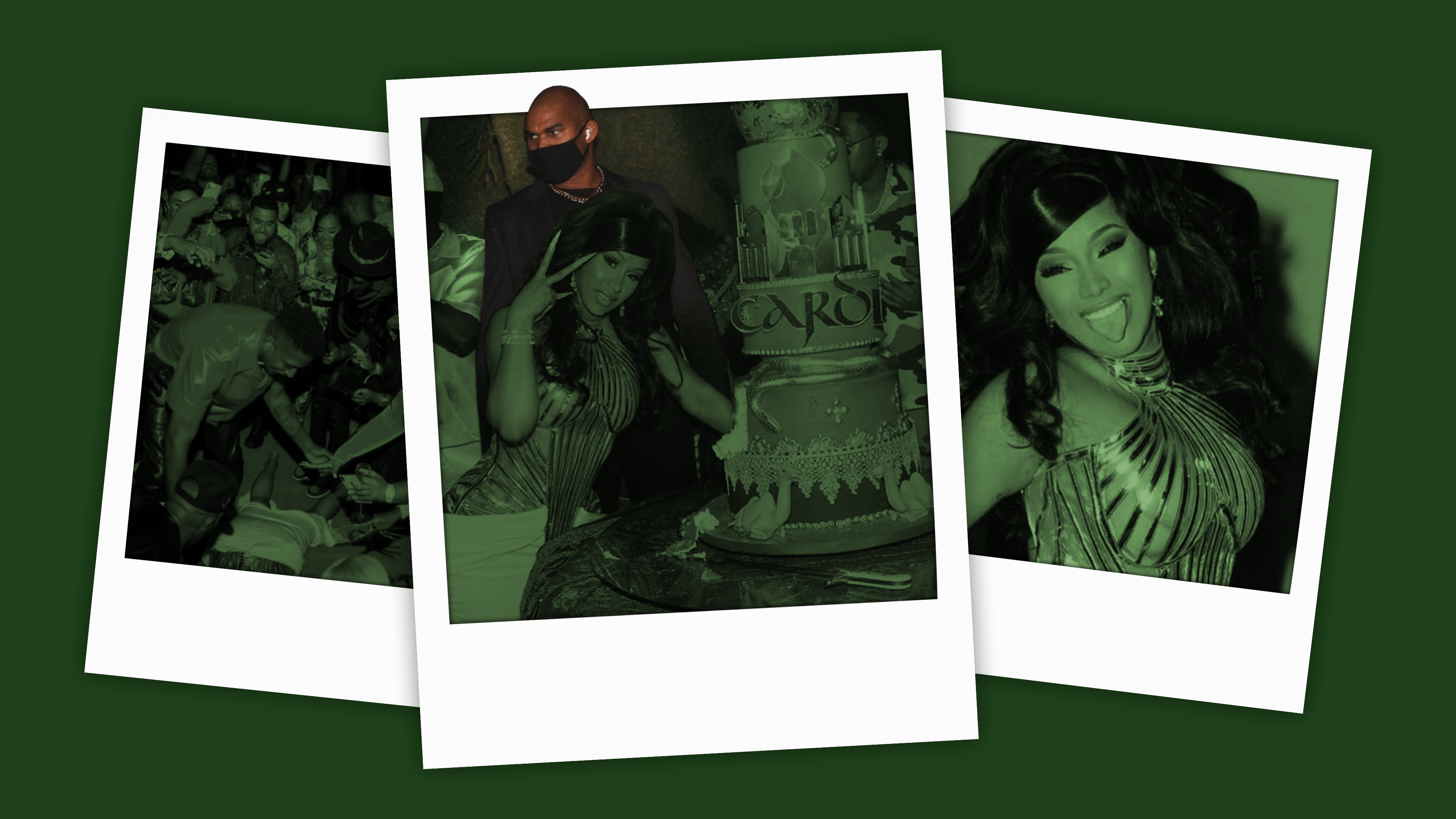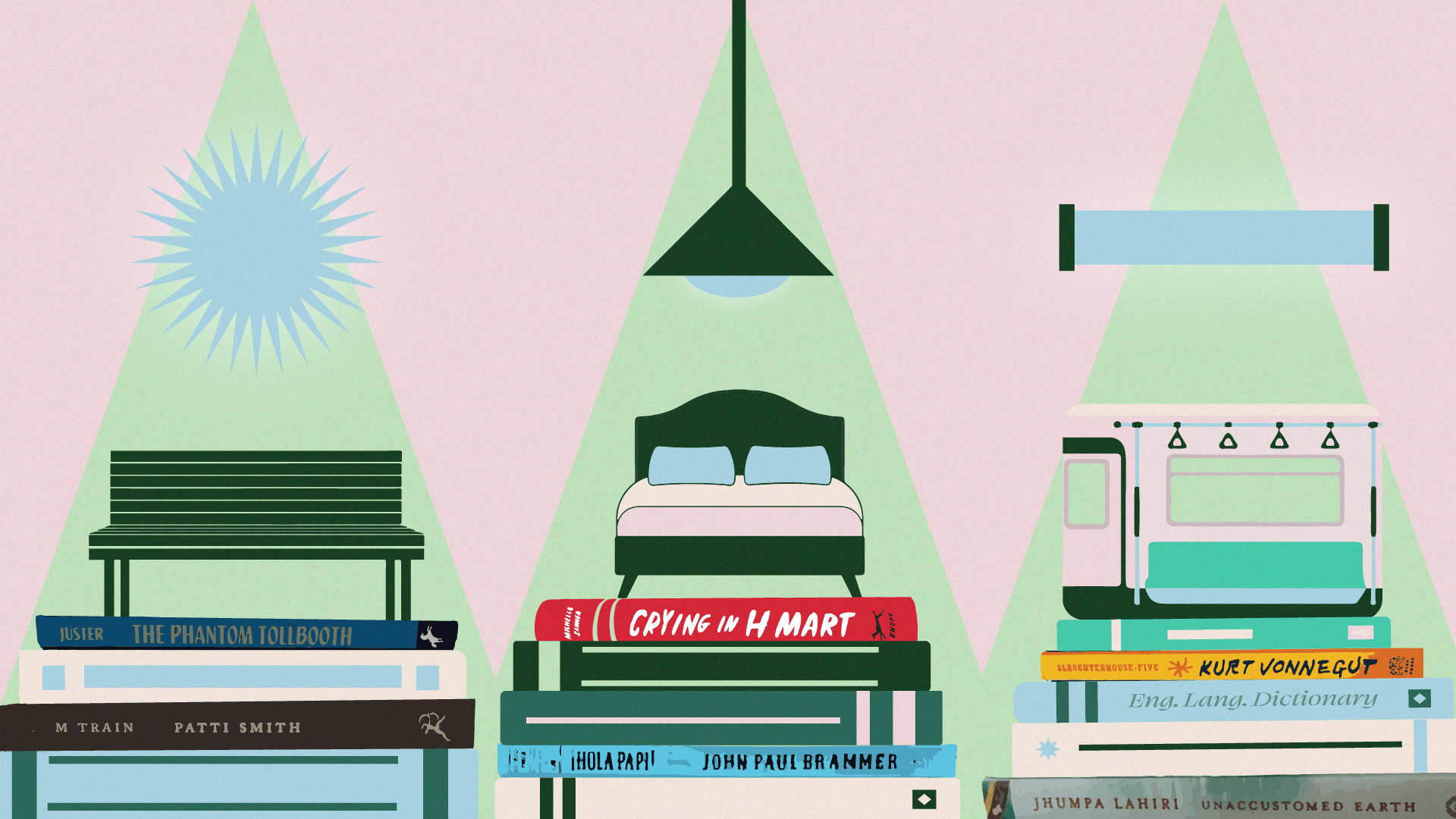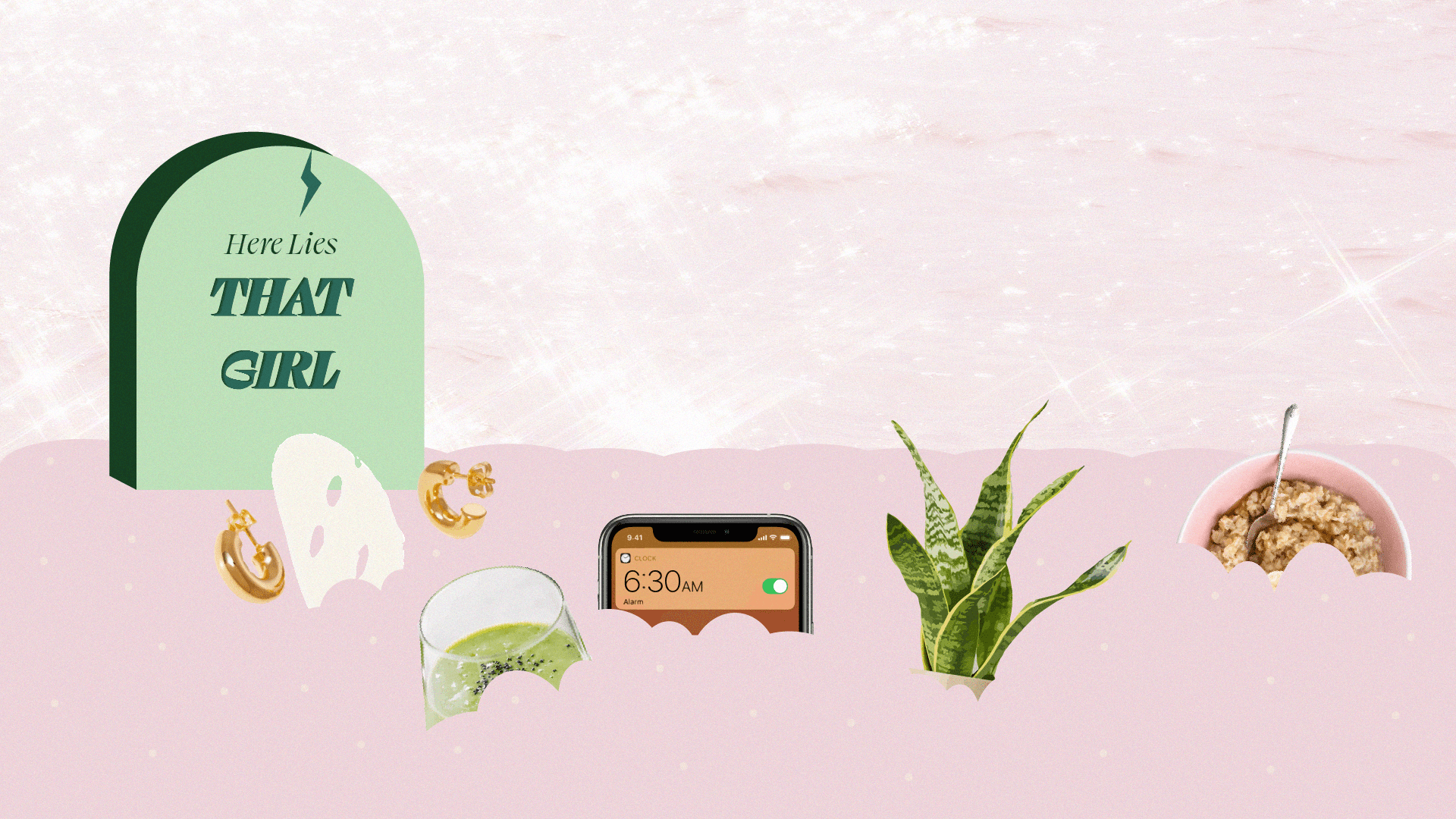
Why Celebrities Pretending the World is “Normal” is a Public Health Concern
Their conflicting politics and personal decisions unmask the harm of their need to be seen.
Between Kim Kardashian West posting a detailed Twitter thread about her 40th birthday celebration on a private island and Cardi B posting nonstop about everything from her relationship to presidential debates, celebrities cannot seem to shut up, and in particular, they cannot seem to shut up about themselves. They acknowledge their influence enough to say the right things, but fail to do the right things and provide good examples, like wearing a mask and social distancing.
Over the last eight months, I’ve found it particularly difficult to grasp that we are in fact living through a pandemic. Secluded in suburbia, I rarely leave the house enough to know what is going on in the world beyond what I see on the internet or the news. It doesn’t help that the rest of entertainment continues to produce content, with weekly episodes of SNL and The Bachelorette reminding me that the world still moves forward, if you’re privileged enough to have the resources. The only performers I’ve seen wear a mask on stage in the last eight months are Lady Gaga and Ariana Grande at the VMAs back in August, proving it is not impossible to sing with a mask on. Meanwhile, almost every other artist performs mask-free, noting they’ve taken “precautions” — without regard for the people surrounding them, and those tuning in to watch.
When celebrities and productions move forward, without even an acknowledgement of the world the rest of us are living in, it stings like whiplash and is incredibly disorientating. I celebrated my college graduation on the couch, in my hometown, my birthday in my backyard (before it rained), and my third anniversary with my boyfriend on Zoom. But watching celebrities continue to live their lives as if the world is normal and then complain about it in the process feels like a form of gaslighting. Am I crazy for never leaving the house out of fear of infecting loved ones, or have these celebrities acquired so much privilege, wealth, and opportunity that they get to bypass the detrimental consequences the pandemic has inflicted onto our social lives and mental health?
Kardashian-West felt the need to share the precautions her friends and family took to “pretend things were normal for just a brief moment in time,” and how “humbly reminded of how privileged my life is,” when she could’ve arrived and left quietly, humbly, without the world knowing. She is one of the few celebrities to disclose how exactly she continues her life as usual, but she still failed to address how her presence on this island impacted the daily lives and safety of those providing food, drinks, and accommodation for West’s crew. The sheer audacity to 1) think people would care and 2) not think about how tone-deaf it is to share a long post about how “lucky” and “privileged” you are to partake in a luxurious and whimsical vacation for a birthday — when more than a million people have died worldwide and millions are out of work — is astounding.
Yet, despite “meaning well” and taking the proper precautions, these celebrities still flaunt their wealth in the faces of fans and mock and criticize them when they have something to say about it. And then they expect their fans, the ones who contributed to their wealth, to be satisfied and proud to be a fan of someone who tells them the bare minimum: to vote. But the “righteous” people who are telling us to vote have no clear message and do not hold themselves accountable for their own actions.
Back in April, Cardi B went on Instagram Live with Bernie Sanders to discuss the way the government was handling the coronavirus crisis. Flash forward to the beginning of October, and she’s enjoying her huge, crowded party for her 28th birthday, with barely a mask in sight. The Bronx rapper is not alone in speaking on her political opinions with no intention of living her life according to those ethics. Selena Gomez recently addressed how she didn’t vote before this election, even though she produced and profited off a Netflix documentary on undocumented families at the U.S.-Mexico border. Jennifer Lawrence shared that she was “a little Republican” before Donald Trump was inaugurated, something no one asked about or cared to know. Kim Kardashian-West recently told her followers to vote, saying, “You have the power to change your future!” without specifying who exactly to vote for. (Her husband, Kanye West, is currently running for President and has spent $12 million dollars alone on his campaign.)
Celebrities acknowledge enough of their political influence to know better than to post crazy photos of huge, lavish parties — because during a pandemic, taking the necessary precautions and reminding fans to do so has an equally urgent, and more immediate impact than telling someone to vote. Or, they could be like most people, who do not share every get together, every purchase, and every celebration, because we understand the cost of public shaming and the benefit of leading by example.
Ultimately, the content celebrities post on social media does hold sway over the general public, especially now. Some studies suggest the public health behaviors of celebrities can affect those who follow them on social media, according to The New York Times. Kristen Elmore, a research associate at the Bronfenbrenner Center for Translational Research at Cornell University, told the Times that it’s possible “these media figures might have an outsize role in altering our behavior.” The Times specifically utilized the example of how portrayals of excessive drinking and sexual habits on reality television influence and correlate with viewers’ drinking and sexual habits to hypothesize reality stars’ influence on people deciding whether or not to wear masks.
Outside of reality television, there is a long history of celebrity influence on public health related issues. Medical News Today reported on a 2013 study conducted by Gareth Evans of Genesis Breast Cancer Prevention and St. Mary’s Hospital in the UK, which evaluated Angelina Jolie’s effect on breast cancer testing. Jolie had announced she underwent a double mastectomy to reduce her risk of breast cancer after testing positive for a BRCA1 gene mutation. The study found genetic testing among high-risk women doubled in the two months following the announcement.
While celebrities’ influence on public health can be beneficial, it can also prove to be disastrous. Celebrities from Jessica Biel to Jim Carrey have contributed to the spread of misinformation and propelled the anti-vaxxer movement forward. Last year, Arthur Caplan, the Director of the Division of Medical Ethics at NYU Langone, said on Boston Public Radio that, “Every nudnik celebrity — recently, Jessica Biel — who announces they don’t like vaccines gets massive coverage,” adding, “In general, the best tool the anti-vaxxers have is to pull the celebrity card, and that really pulls attention.”
Those who are quick to downplay the effect of celebrity are also quick to forget how Elvis Presley swayed the public on the Ed Sullivan Show when he famously received a polio vaccine on air, in front of millions of people, to prove the vaccine was safe. In 1957, a national survey saw that 75% of people under the age of 20 reported receiving at least one shot of the vaccine. The numbers raised to 90% by 1961, according to a 1962 public health report on national participation trends by Dr. Monroe G. Sirkin.
A little more than a century ago, celebrities were not fond of wearing masks during the Influenza outbreak of 1918. Alma Whitaker of The Los Angeles Times noted famous people then found masks “so horrid” because they could not bear to go unrecognized. Again, as history rhymes with itself, celebrities comprehend that the value of their faces extends well beyond walking down the street.
Cardi B articulated it perfectly when she recently addressed her right to purchase and parade around her Birkin bags on Instagram. She unpacked how female hip-hop artists are not depreciating the value of the investment bag, but adding value, explaining, “When ‘Bodak Yellow’ came out, you could Google that the sales [of Christian Louboutins] went up 1000%+.” A 2017 study from The Business of Fashion found sales for the Louboutin heels went up by 217% after her single “Bodak Yellow” dominated the charts, contributing $4.5 million in media value for the brand. These brands recognize the value celebrity faces hold, that’s why they’re on our magazines and billboards. If brands can see that, it’s time that we do, too.
The sway celebrities hold on our everyday lives is eerily Big Brother-esque. They’re key figures for everything from brand marketing to political endorsements. The overwhelming, now almost dystopian system of celebrity allows them to always remain at the center, while the fans underneath them crumble. All publicity is good publicity — that’s why they won’t shut up about the vacations they took, the celebrations they had, the clothes they bought, and the opinions they have on everything from politics to celebrity culture. The current system functions on the same premise it did back in 1918: For everyone to see their faces and to profit from it. But they’re quick to forget that eyes are the window to the soul, and they don’t want us to look too closely.


